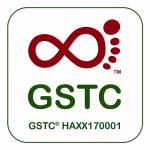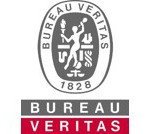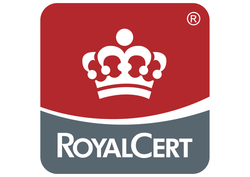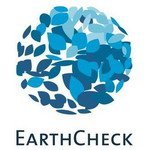获得认证当可持续酒店
越来越多的用户,普通游客,以及其他从事旅游行业的供应商的顾客们都希望可持续旅游在实践中是真实存在的。(《Booking.com可持续旅游报告2019》)。
此外,旅游行业不仅希望自己的产品是经过可持续旅游认证的,并且还希望提供认证的认证机构是GSTC认可的(Trivago推荐)。
由可信的经过认可的认证机构认证意味着您的旅游商品或服务符合市场上最严格的社会与环境标准。随着公众对旅游可能产生的正面和负面影响的关注日益增加,认证也会为您应对复杂的环境及社会问题提供了一个可靠的解决方案。
认证是指在自愿的前提下,由独立第三方进行评估,并通过审计,确认一个旅游企业或旅游目的地是否符合相关标准。GSTC不直接提供认证服务。认证服务由全世界众多对认证机构(certification bodies)来提供,而GSTC的主要任务,是来认可那些认证。
认证机构认可是指,认证机构通过了GSTC独立和中立的认可流程,被GSTC认可了这些认证机构在对酒店和旅行社进行认证的过程中使用了完整且中立的方式。GSTC给予这些认证机构“经认可的认证机构”这样一个质量评估标识。
认证,认证机构认可,标准认可有何区别?
由可信的经过认可的认证机构认证意味着您的旅游商品或服务符合市场上最严格的社会与环境标准。随着公众对旅游可能产生的正面和负面影响的关注日益增加,认证也会为您应对复杂的环境及社会问题提供了一个可靠的解决方案。
旅行社应该自豪地展示其获得的可持续认证以及关于认证机构的相关信息。获得这样的认证意味着您可以告知所有的利益相关方——从顾客到您的供应链伙伴——您的经营管理是可靠的,并且您的管理和经营思路不是短视的,是面向未来的。经过认证的旅行社可以使用GSTC的标志以及认证机构的标志来证明您经过了可持续旅游的认证和审查。
如何获得认证
如果需要获得认证,旅游公司和旅游目的地必须:
- 从下面列表中选择一个认证机构(CB)-这些机构是根据其GSTC认可的认证机构,他们的认证过程质量是符合要求的。
2. 您与您选择的认证机构(CB)合作,确保您的运营完全符合GSTC标准后,您的机构/目的地将获得经过GSTC认可的认证机构颁发的认证证书。
下面列表中的认证机构经过GSTC认可,有资格认证可持续酒店。因此,这些认证机构及其颁发的认证证书的持有人有权展示指定的GSTC标志(使用必须符合GSTC的logo授权协议要求)。
需要注意的是:GSTC不直接进行任何认证服务。GSTC通过认证流程合作伙伴ASI(国际保证服务)去认可可以提供认证服务的机构提供,并由认证机构来提供认证服务。认证(Certification)和认可(Accreditation)是不同的概念和范围。
GSTC Accredited Certification Bodies for Hotels/Accommodations
Bureau Veritas
Bureau Veritas is a world leader in testing, inspection and certification services. Since its creation in 1828, Bureau Veritas has been supporting its clients on every continent to continually improve their performance via certification of management systems, product certifications and customized audits. The Group has more than 78,000 employees located in more than 1,500 offices and laboratories around the globe. Bureau Veritas helps its clients improve their performance by offering services and innovative solutions, in order to ensure that their assets, products, infrastructure and processes meet standards and regulations in terms of quality, health and safety, environmental protection and social responsibility.
To be certified by Bureau Veritas, contact BV directly at [email protected] or visit the following link to get Certified by Bureau Veritas.
Control Union

To be certified by Control Union, contact Seth Wang, General Manager directly at [email protected] or visit this link to Get Certified by Control Union.
Dream&Charme
DREAM&CHARME, is an Italy-based international certification body with headquarters in Milan, Italy. The company, founded in 2006, is dedicated to maintaining high standards in the hospitality industry, focusing on sustainable practices and hospitality reliability across various accommodations worldwide. Dream&Charme is focused only in the hospitality industry to verify and certify, as an accredited third party, therefore independent and impartial, their characteristics its reliability and sustainability. DREAM&CHARME is operating worldwide, especially in: Italy, France, Spain, United States of America, Greece, Egypt, Kenya, Cape Verde, Tanzania, Madagascar, Mauritius, Maldives, Oman, Dominican Republic, Bahamas, Mexico.
To be certified by Dream&Charme, please contact [email protected] or visit their website www.dca-cert.com/en
RoyalCert
RoyalCert is a reputable certification body based in Germany, operating in 25 countries globally. RoyalCert offer assessment and certification services to a wide range of industries, including Tourism Industry, and serving thousands of customers. RoyalCert core strength lies in their experienced auditors, who have over 20 years of auditing expertise. The company is committed to sustainable growth and adheres to high ethical standards, focusing on integrity and customer satisfaction. By partnering with RoyalCert, customers can improve their operations, enhance business performance, and make a positive impact on society and the environment.
To get certified by RoyalCert, contact RoyalCert directly at [email protected].
United Certification Systems Limited
UCSL United Certification Systems Limited is an independent international certification body with Headquarters in EU and operating globally (except Türkiye). UCSL is accredited for various volunteer sustainability certification schemes including Hotels & Tour Operators (GSTC), Marine (ASC, MSC), Global Sustainable Enterprise System (GSES) etc. The team of certification body involves numerous experts and professionals with vast local and international experience in the auditing and sustainability sector. UCSL aims to contribute to the UN SDGs, environmental well-being of the planet through provision of excellent services to like-minded sustainable businesses.
Visit the following link to get Certified by UCSL.
Vireo Srl
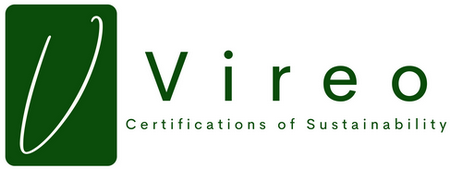
To be certified by Vireo Srl, contact Vireo directly at [email protected] or visit the following link to get Certified by Vireo Srl.
Mauritius Standards Bureau: Blue Oasis
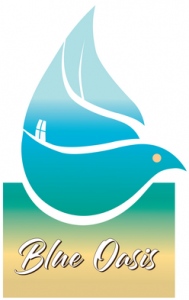
If your Accommodation/Hotel is located in Mauritius, visit the following link to get Certified by MSB.
另一个选择是寻求GSTC认可标准的认证
GSTC对一套可持续旅游标准的认可意味着这一套可持续旅游标准或体系符合GSTC的可持续旅游标准。GSTC的标准认可由GSTC旗下独立的专家认可程序委员会来实施。一旦一套可持续旅游标准获得认可,则意味着GSTC已验证该标准(或体系)符合GSTC标准,且这套标准中的任何其他附加条款与GSTC标准的要求并不矛盾。
注意:对可持续旅游标准对认可并不是质量标识体系,对标准的认可与标准所有者应用其标准进行认证的过程无关。
- 可持续性的管理
- 社会&经济效益
- 文化遗产
- 环境:污染,景观,生物多样性

Actively Green Standard
The Actively Green standard is the core component used in the Actively Green Sustainable Business Training, Certification and Engagement Program. It was launched as an innovative legacy initiative of the 2015 FIS Alpine World Ski Championships in Vail and Beaver Creek, Colorado, USA through a partnership with Sustainable Travel International and Town of Vail. The program helps businesses incorporate sustainability best practices into their business and contribute to local community climate action initiatives. Another component of the Program is the Mountain IDEAL destination standard for mountain resort communities.

Adventure Green Alaska Standard
Adventure Green Alaska began in 2007 as a statewide effort to grow sustainable tourism in Alaska and promote model businesses practicing economic, environmental and social sustainability. It is Alaska’s only sustainable tourism certification program and was created entirely by volunteers. The program came under the Alaska Travel Industry Association in 2015, whose goal was to grow the program in Alaska and increase the programs credibility through the development of a new level of standards, AGA Summit, that meet the GSTC Criteria for tour operators and accommodations.
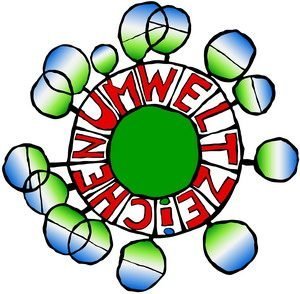
Austrian Ecolabel for Tourism
The Austrian Ecolabel for Tourism and Leisure-time Industry was the first national eco-label for tourism worldwide. It was implemented in 1996 by the Austrian Ministry for Sustainability and Tourism. Almost all types of tourism businesses can be awarded for their commitment in the fields of environmentally friendly management and social responsibility through independent third-party audits on site. The Ecolabel for tourist accommodation covers businesses of any size fulfilling an advanced set of criteria developed and regularly updated in a comprehensive stakeholder process involving tourism as well as environmental experts.

Biosphere Responsible Tourism Standard
Biosphere Tourism is a standard by the Responsible Tourism Institute (RTI), an international organization that has been promoting for more than 20 years responsible tourism at an international level. Through the Biosphere brand, the RTI promotes Sustainable Development by measuring the contribution of tourism to the 17 Sustainable Development Goals (SDG) of the United Nations and the indications of the Paris Agreement against Climate Change.
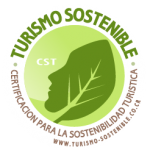
Costa Rica Certification for Sustainable Tourism (CST) Standard
The Certification for Sustainable Tourism (CST), established by the Costa Rican Tourism Institute in 1997, was created to provide guidelines for hotel properties and service providers to build their business model based on the best sustainable tourism practices – the management and impact of the natural, cultural and social resources of the country. The criteria and indicators that are valued to award certification include: business management; social, cultural and economic management; environmental management; and the management of specific indicators according to category.
Chile Sistema de Distinción en Turismo Sustentable (SERNATUR) Standard
The Chilean national system for distinction of sustainable tourism recognize the efforts of tourist accommodation that have progressed in any field of sustainability, differentiating its members over their competitors while ensuring visitors each organization’s commitment to sustainability.
EarthCheck Company Standard
The purpose of the EarthCheck Company Standard is to provide organisations with a framework for environmental and social sustainability. This Standard includes requirements specific to other management systems, such as quality, environment, occupational health and safety, risk management and corporate social reporting, and its elements can be integrated with those of other management systems. The Standard ensures a high level of alignment to ISO14001, ISO50001, ISO26000, ISO9001, the GRI, the HCMI, the SDGs, and the GSTC Criteria.
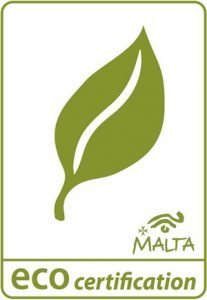
Eco-Certification Malta Standard
The ECO Certification is Malta’s national scheme for ensuring the environmental, socioeconomic, and cultural sustainability of hotels and farmhouses on the Maltese Islands. The scheme was launched by the Malta Tourism Authority in 2002. The criteria were updated in 2008, 2012 and again in 2019. The new criteria follow a shift from an environmental scheme to a sustainable scheme covering environmental, social, cultural, economic, quality and health & safety. The main areas covered by the current criteria are: Sustainability management systems; Waste management; Purchasing; Control of chemicals; Energy; Water; Air quality; Noise; Building and green areas; Local culture & national surroundings; and Communication with customers.
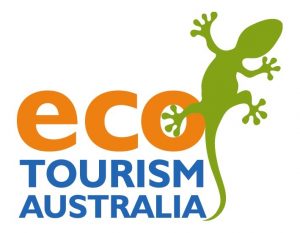
Ecotourism Australia’s ECO Certification Standard
Ecotourism Australia’s ECO Certification program has been around since 1996. ECO Certification was created by industry for industry, with collaboration and consultation by academics, industry experts, environmental scientists and tourism operators.
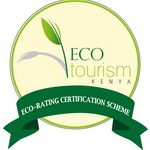
Ecotourism Kenya Standard
The Ecotourism Kenya Eco-rating Certification Scheme is designed to certify as sustainable accommodations of various types throughout Kenya. This is part of Ecotourism Kenya’s efforts to make nature- and wildlife-based tourism more and more sustainable by applying localized standards that adhere to the universal principles included within the GSTC Criteria.
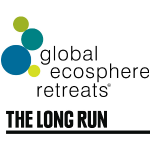
Global Ecosphere Retreats (GER)
The Long Run’s Global Ecosphere Retreats® (GER) standard covers all 4C (conservation, community, culture and commerce) aspects of sustainability in tourism with equal weight. The standard is a vehicle to support nature-based tourism businesses’ in their journey of continuous improvement. Likewise, it is not only about businesses merely mitigating their negative environmental impacts but about positively impacting the well-being of the planet and the people.

GREAT Green Deal Certification
The GREAT Green Deal Sustainable Certification Program (GGD) represents a way of doing business while taking care of all stakeholders involved in the tourism operations. The GGD standard has more than 400 indicators that provide hotel and tour operators a map that takes executives and entrepreneurs on a path to be more successful in their business while being responsible with employees and their families, the community, the cultural heritage and traditions including the environment.
Green Globe
The Green Globe Standard has been developed and improved over the past 25 years and includes 44 core criteria supported by over 380 compliance indicators. The applicable indicators vary by type of certification, geographical area as well as local factors. The entire Green Globe Standard is reviewed and updated twice per calendar year. Green Globe is active in harmonizing with other established sustainability certification programs around the world. The process of harmonization contributes to maintaining core criteria and at the same time addresses regional issues through the adoption of locally developed standards. The Green Globe Standard is based on the following international standards and agreements: GSTC Criteria; Baseline Criteria of the Sustainable Tourism Certification Network of the Americas; Agenda 21; ISO 9001 / 14001 / 19011.
 Green Growth 2050
Green Growth 2050
Green Growth 2050 has been developed to meet the needs of tourism and travel businesses seeking today’s solutions to the issues driving social, cultural and environmental change. The Green Growth 2050 Global Standard and Sustainability Reporting Framework is an international online solution designed to allow travel and tourism organisations to assess the overall sustainability and CSR performance of their existing individual properties and portfolios.
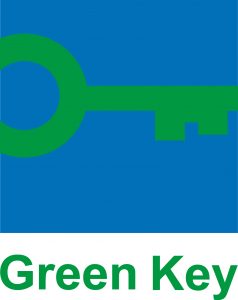
Green Key Criteria by the Foundation for Environmental Education (FEE)
The Green Key award is a leading standard for excellence in the field of environmental responsibility and sustainable operation within the tourism industry. This prestigious eco-label represents a commitment by businesses that their premises adhere to the strict criteria set by the Foundation for Environmental Education (FEE). A Green Key stands for the promise to its guests that by opting to stay with the Green Key establishment, they are helping to make a difference on an environmental level. Green Key is a voluntary eco-label awarded to more than 3,200 hotels and other establishments in 65 countries

Green Key Eco-Rating by Green Key Global
Green Key Global is a leading international environmental certification body offering a suite of sustainability programs designed specifically for the lodging industry. For more than 20 years its flagship program, the Green Key Eco-Rating Program, has been evaluating, auditing and certifying lodging properties based on their commitment to sustainable operations. In support of this, Green Key Global also works diligently to educate members on the value these initiatives have on an environmental, social, cultural and economic level. An affordable, comprehensive assessment for independent and branded properties of all sizes, the Green Key Program strives to inspire and complement ongoing CSR activities of its members.

Green Star Hotel Standard
The Green Star Hotel Certificate for tourist’s accommodation businesses is awarded to tourist accommodations in Egypt for their commitment in the field of environmentally friendly management and social responsibility. The Green Star Hotel Certification Programme is a national certification and capacity building programme under the patronage of the Egyptian Ministry of Tourism. It has been developed as a public private project between the key stakeholders from the German and Egyptian tourism market , the Egyptian tourism authorities and the German International Cooperation to enhance the quality and environmental awareness and raise the competiveness and environmental performance of the Egyptian tourist accommodation industry. By starting with the key sector in the Egyptian tourism industry, the hotel sector, a first step is taken to move the whole tourism sector towards more sustainability. On the long run, other sectors such as cruise ships and diving should follow.

GreenStep Sustainable Tourism Standard
GreenStep’s Sustainable Tourism standard is part of their broader Sustainable Tourism 2030 initiative, which provides programs and services for destinations, tourism businesses, and accommodation providers. The Sustainable Tourism standard enables tourism businesses and accommodations to measure their sustainability performance in several key categories; management, social, economic, natural, cultural, and environmental. To become certified, businesses must receive a virtual assessment, submit evidence, and attain a minimum score.
 Green Tourism Active Standard
Green Tourism Active Standard
Green Tourism Active (GT-Active) is a global sustainability assessment and certification organisation. The GTA certification programs offer a forward thinking and leading global standard with in-depth focus on environmental, socio-economic, cultural and conservation performance and compliance in accordance with rigorous GSTC criteria and leading international developments. GTA focusses on sustainable travel and tourism partners and destinations.

Hostelling International’s Quality and Sustainability Standard
Hostelling International, and its member associations commit to intensifying their efforts to achieve a worldwide network of sustainable organisations and hostels. In line with its internationally adopted sustainability charter, HI has developed HI-Q&S (Hostelling International Quality & Sustainability), a label that stands for a commitment to provide an experience of high quality, with a positive effect on local economy, communities and the environment. The accreditation is based on assessment criteria aiming to: demonstrate effective sustainable management; maximise social and economic benefits to the local community, cultural heritage and environment and minimise negative impacts; conserve biodiversity, ecosystems and landscapes. The HI-Q&S standards engage hostellers in a viable, equitable and bearable way of travelling that supports HI’s values of authenticity, inclusivity, learning and understanding and sustainability.

Hoteles más Verdes (AHT) Standard
Hoteles más Verdes (“Greener Hotels”) is the Sustainability Certification Program of the Asociación de Hoteles de Turismo de Argentina (AHT) that promotes the adoption of sustainable tourism good practices in the hospitality industry since 2010.The program certifies with the Eco-label “Hoteles más Verdes” those hotel companies that prove by auditing good practices of ethical, environmental and socially responsible management with its stakeholders and the host community of the destinations of Argentina.
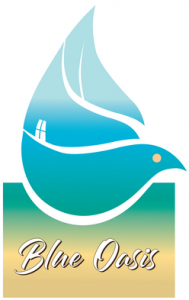
Mauritian Standard on Sustainable Tourism: Blue Oasis
The Mauritian Standard on Sustainable Tourism (MS 165:2019), Blue Oasis, was developed to guide the sustainable development of the tourism industry in Mauritius.The focus of the Sustainability Tourism Standard is to address requirements of the environmental impacts and its effect on land, air, water and other organism and ecosystem of the island. The social-cultural impacts that affect local communities, social structure and cultures as well as economic impacts categorised as direct, indirect or induced. These requirements to be measured, monitored and evaluated for continual improvement of the sustainability of the tourism industry in Mauritius.

Preferred by Nature Sustainable Tourism Standard for Accommodation
The Preferred by Nature (Formerly NEPCon) Sustainable Tourism Standard for Accommodations is an improved version of the former Rainforest Alliance sustainable tourism standard that is divided in three fields designed to assess any tourism organization’s performance regarding their business, sociocultural and environmental practices. The NEPCon Sustainable Tourism Standard for Accommodations is structured around these objectives: That the biodiversity and ecosystems of tourist destinations are preserved through the implementation of environmental management systems that protect the integrity of ecosystems, promote the rational use of natural resources, the protection of biodiversity and the mitigation of various negative impacts, including those derived from climate change; That the social and cultural development of the communities involved in tourist activities improve, by reinforcing, the economic activities that they are involved in, and as a result, their livelihoods; That tourism activities are carried out fully respecting and appreciating all the local cultural expressions, while at the same time protecting and emphasizing the importance of tangible and intangible cultural heritage.
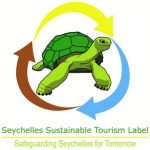
Seychelles Sustainable Tourism Label (SSTL) Criteria
The Seychelles Sustainable Tourism Label which is a certification programme aims to enhance the quality and sustainability of visitors’ experiences by mitigating tourism’s negative economic, environmental and social impacts on the destination and contributing to the preservation of natural and cultural treasures for the future generations of Seychelles.

Sustainable Travel Ireland – GSTC Industry Criteria
Sustainable Travel Ireland, formerly Ecotourism Ireland, is Ireland’s leading and longest-running body for the promotion of sustainable and responsible tourism, training and certifying businesses for over 10 years. Founded in 2009, Ecotourism Ireland set out to develop ecotourism in Ireland, and to highlight the best of what the country had to offer whilst ensuring its heritage and environment were preserved for this and future generations. Today, Sustainable Travel Ireland has the same mission but broader, aiming to drive the development of a new, sustainable model for ALL tourism in Ireland, and has formally adopted the GSTC Industry Criteria to be used in Ireland by accommodations and tour operators.

TOFTigers Initiative’s Pug Standard
The India & South Asian based nature tourism focused organisation, TOFTigers has its PUG Eco- rating certification recognised as a part of its attempts to help use the booming market in nature tourism across India and South Asia as a tool for conservation of forest and wildlife, including tigers. Alongside over 220 of the world’s best known tour operators, agents and lodge members, its promotes a purchasing supply chain campaign to promote better tourism, better training and better monitoring and advises Governments, States, parks, providers and visitors on best practice in nature tourism, to ensure a fair and equitable future for nature, visitors and bordering park communities.

Travelife Standard for Hotels & Accommodations
The Travelife for Hotels & Accommodations international certification scheme works with its members to increase their sustainability. The Travelife criteria cover environmental, social and economic business impacts, and a hotel’s success in meeting these criteria is assessed by independent auditors. Hotels meeting the Travelife standard can promote their business with the Travelife ‘Gold’ and ‘Award of Excellence’ certification marks, helping consumers easily identify more sustainable accommodation.
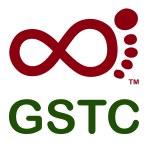
GSTC Criteria
The GSTC Criteria serve as the basis for determining whether other standards are “GSTC Recognized”. That means that by definition the GSTC Criteria can be considered “Recognized.” It also means that any Certification Body that uses the GSTC Criteria for their certification program is using a GSTC Recognized standard. Please note that GSTC Accredited means that a Certification Body uses the GSTC Criteria or another GSTC-Recognized set of standards to certify, AND has undergone a rigorous verification process by the GSTC to verify that their certification program is neutral and competent.


